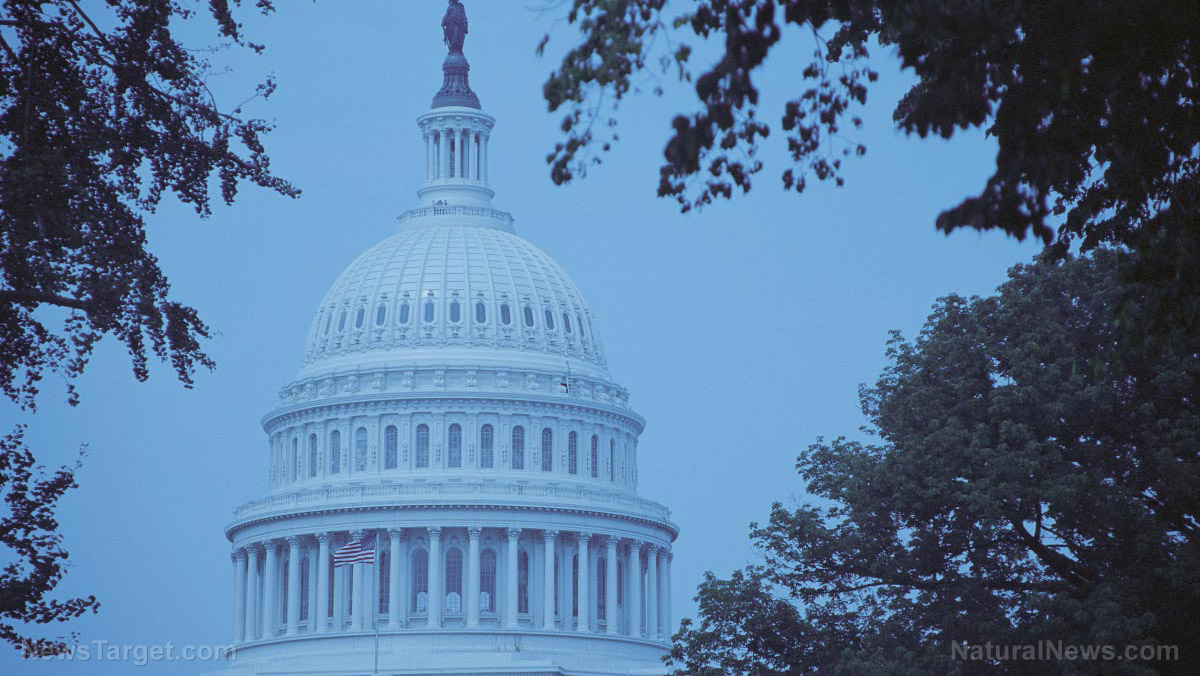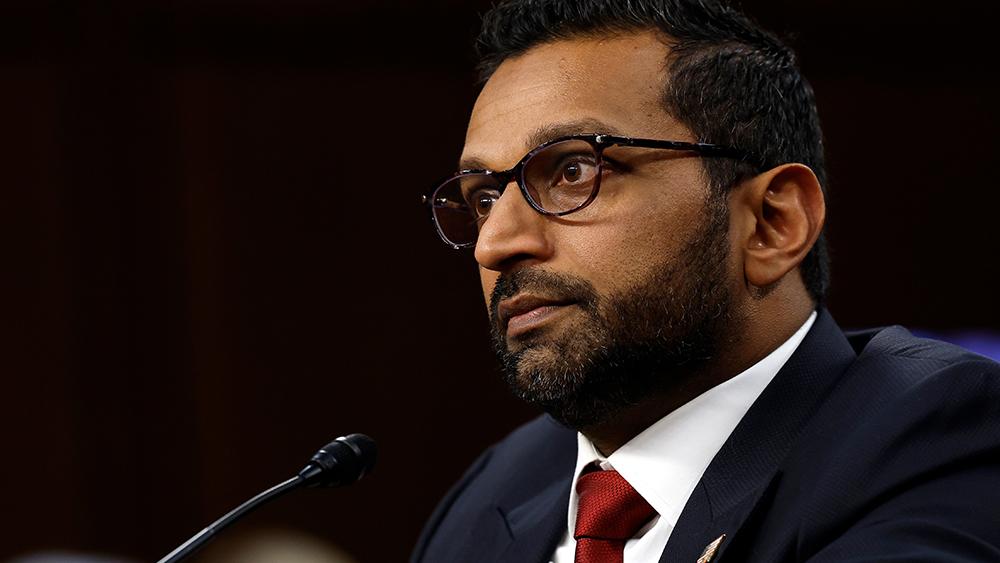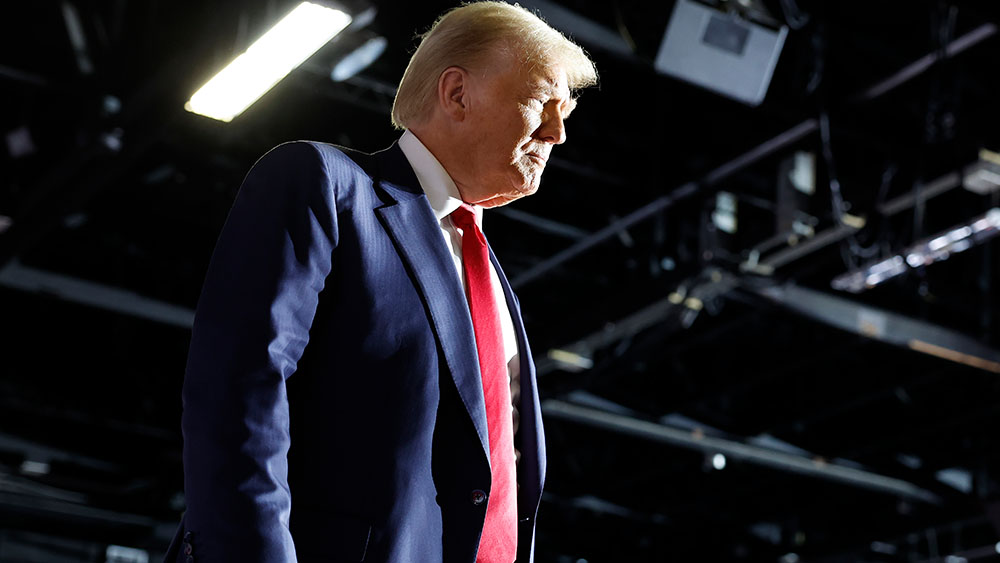 Parler
Parler Gab
Gab
- President Trump's administration is proposing a 30% budget cut and potential layoffs of up to 50% of the workforce at the National Oceanic and Atmospheric Administration (NOAA), citing the need to reduce government waste.
- Late-night directives, such as restricting international communications, have caused chaos and a significant decline in employee morale at NOAA.
- Critics view the proposed changes as reckless and potentially harmful, while supporters argue that they are necessary for fiscal responsibility and eliminating bureaucratic inefficiencies.
- The cuts could lead to reduced accuracy in weather forecasting, increased risks from natural disasters and negative impacts on ocean conservation and climate research.
- The debate over NOAA's future reflects a larger tension in American governance between the need for efficient government operations and the importance of public safety and scientific progress.
A history of overreach?
NOAA, an arm of the Department of Commerce, has long been a cornerstone of U.S. scientific leadership. Its work spans from tracking hurricanes to monitoring fish populations, and its data underpins industries worth billions of dollars. However, critics of the agency argue that it has become a symbol of government overreach, particularly in its focus on climate change research, which some conservatives view as politically motivated. The Trump administration’s approach to NOAA is not new. During his first term, the president famously clashed with the agency over its handling of Hurricane Dorian forecasts, leading to the infamous “Sharpiegate” scandal. Now, with the help of Elon Musk’s government efficiency taskforce, Trump is doubling down on his mission to streamline federal operations. “We can deliver the product less expensively,” said Howard Lutnick, Trump’s nominee for Commerce Secretary, during a recent congressional hearing. “But the outcome of delivering those services should not be changed.”The efficiency argument
Proponents of the administration’s actions argue that NOAA, like many federal agencies, has grown inefficient and overly bureaucratic. The proposed cuts, they say, are part of a broader effort to eliminate redundancy and waste. Elon Musk’s taskforce, known as the Department of Government Efficiency (DOGE), has been at the forefront of this push, reportedly walking into NOAA headquarters unannounced to demand access to IT systems and internal data. “There’s no real transparency. They just show up wherever they want, do whatever they want,” said Andrew Rosenberg, a former NOAA official now at the University of New Hampshire. “I think the strategy here is: ‘Well, we’re just going to do it and dare somebody to stop us, and by the time they stop us, we’ll have destroyed it.’” While such tactics may seem heavy-handed, they align with Trump’s long-standing promise to “drain the swamp.” The administration’s supporters argue that the federal government has become a bloated behemoth, and drastic measures are necessary to restore fiscal responsibility.The cost of cutting
Critics, however, warn that the proposed cuts could have dire consequences. NOAA’s work is not just about predicting the weather; it’s about saving lives and protecting property. The agency’s data powers everything from hurricane tracking to flood warnings, and its international collaborations are essential for accurate forecasting. “Weather does not respect political boundaries,” said Daniel Swain, a climate scientist at UCLA. “It is not possible to predict the weather in the United States without cooperation from other parts of the world.” Jennifer Francis, a climate scientist at the Woodwell Climate Research Center, echoed these concerns. “It should be us feeling the gut-twisting worry,” she said. “If we lose NOAA’s services, we lose lives, property and billions of dollars.” The potential ripple effects of NOAA’s downsizing are vast. Overfishing, increased imports of illegally sourced seafood and threats to endangered wildlife are just a few of the possible outcomes. And without accurate weather forecasts, communities across the country could be left vulnerable to natural disasters.A balancing act
The debate over NOAA’s future highlights a fundamental tension in American governance: the need for efficiency versus the need for public safety. While there is no doubt that government agencies can and should strive to operate more effectively, the question remains whether the Trump administration’s approach strikes the right balance. As the dust settles on this latest chapter in the Trump presidency, one thing is clear: the battle over NOAA is about more than just budgets and bureaucracy. It’s about the role of government in protecting its citizens and the values that define our nation. For now, NOAA employees remain on edge, unsure of what the future holds. But as the administration continues its push for efficiency, the rest of us must ask: at what cost? This article reflects the views of a conservative journalist committed to fiscal responsibility and limited government, while acknowledging the critical importance of NOAA’s mission to public safety and scientific progress. Sources include: ClimateDepot.com MSN.com TheGuardian.comU.S. and Russia seek peace in Ukraine, leaving Zelensky in panic over potential aid cuts
By Cassie B. // Share
DOGE saves taxpayers $55 billion in under a month, exposing Biden-era waste
By Cassie B. // Share
Senate advances Kash Patel’s FBI Director nomination, final vote expected Thursday
By Cassie B. // Share
60 Minutes faces backlash over fake news scandal promoting left-wing victims narratives
By Lance D Johnson // Share
The Ukraine debacle: A turning point in American foreign policy
By Willow Tohi // Share
Trump realigns DHS, Removes Climate Initiatives: A new era of national security focus
By Willow Tohi // Share
Governments continue to obscure COVID-19 vaccine data amid rising concerns over excess deaths
By patricklewis // Share
Tech giant Microsoft backs EXTINCTION with its support of carbon capture programs
By ramontomeydw // Share
Germany to resume arms exports to Israel despite repeated ceasefire violations
By isabelle // Share










